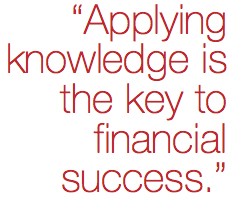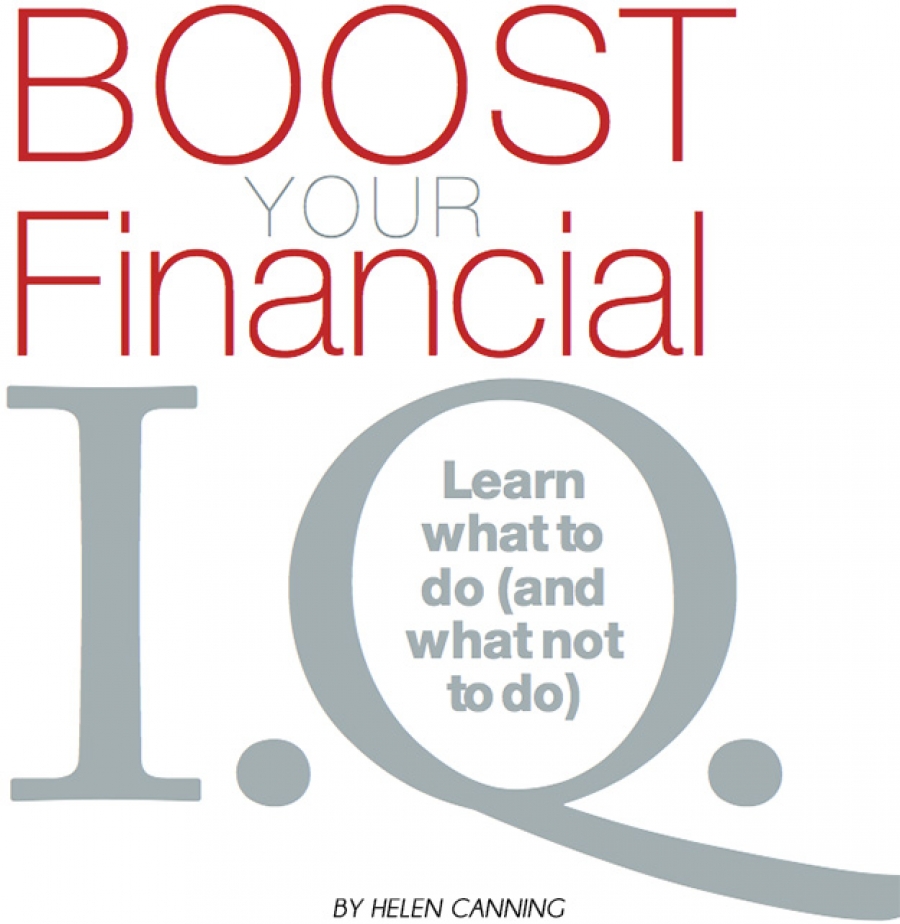Ignorance isn’t bliss. Throughout the course of your lifetime, it can cost you approximately $1 million. “Knowledge is critical, especially regarding our finances,” says best-selling author and certified public accountant Deborah Smith Pegues. “I think Senator Mike Enzi said it best in his comments to the United States Banking Committee in February 2002:
‘Financial literacy is something that is needed over a broad range of income levels. No matter how much one earns, money management is a necessity. It is something we need to begin emphasizing in grade school and continue all the way through high school. It shouldn’t stop there. Financial education should be something we continue to concentrate on for our entire lives.’”
Applying knowledge is the key to financial success. Without it, we’re bound to make (and repeat) costly mistakes. King Solomon instructed, “Learn the truth and never reject it. Get wisdom, self-control, and understanding” (Proverbs 23:23, New Century Version). Whether you’re trying to climb out of a money pit, or eager to become fiscally-savvy, you should boost your financial IQ.
The Cost Your FICO score (that little thing that estimates your credit worthiness) affects more than your mortgage and credit card interest rates. It can impact how much you pay for insurance, whether you get a job, and even your ability to further your education. That’s right! Bad credit can disqualify you from university and federally funded loans. To add fuel to the fire, many employers legally (with your permission) use your credit score to evaluate your character. And if you refuse to grant permission, the probability of being hired is very low. Proverbs 22:1 states, “A good name is more desirable than great riches; to be esteemed is better than silver or gold” (New International Version). Accordingly, when it comes to hiring, employers are looking for people who can be trusted. A credit score provides an approximation of a person’s ability to manage their resources, deliver what they promise, and consistently demonstrate responsibility. It’s not intended to reflect what someone does for a week, a few months, or even a few years. It’s geared at measuring an individual’s long- term habits. Plus, consumers with bad credit can pay between 20 to 50 percent more in auto insurance premiums. And people with poor credit usually pay 19 to 26 percent interest rates on a new car, as opposed to 6 to 7 percent (paid by those with average credit scores).
Your FICO score (that little thing that estimates your credit worthiness) affects more than your mortgage and credit card interest rates. It can impact how much you pay for insurance, whether you get a job, and even your ability to further your education. That’s right! Bad credit can disqualify you from university and federally funded loans. To add fuel to the fire, many employers legally (with your permission) use your credit score to evaluate your character. And if you refuse to grant permission, the probability of being hired is very low. Proverbs 22:1 states, “A good name is more desirable than great riches; to be esteemed is better than silver or gold” (New International Version). Accordingly, when it comes to hiring, employers are looking for people who can be trusted. A credit score provides an approximation of a person’s ability to manage their resources, deliver what they promise, and consistently demonstrate responsibility. It’s not intended to reflect what someone does for a week, a few months, or even a few years. It’s geared at measuring an individual’s long- term habits. Plus, consumers with bad credit can pay between 20 to 50 percent more in auto insurance premiums. And people with poor credit usually pay 19 to 26 percent interest rates on a new car, as opposed to 6 to 7 percent (paid by those with average credit scores).








